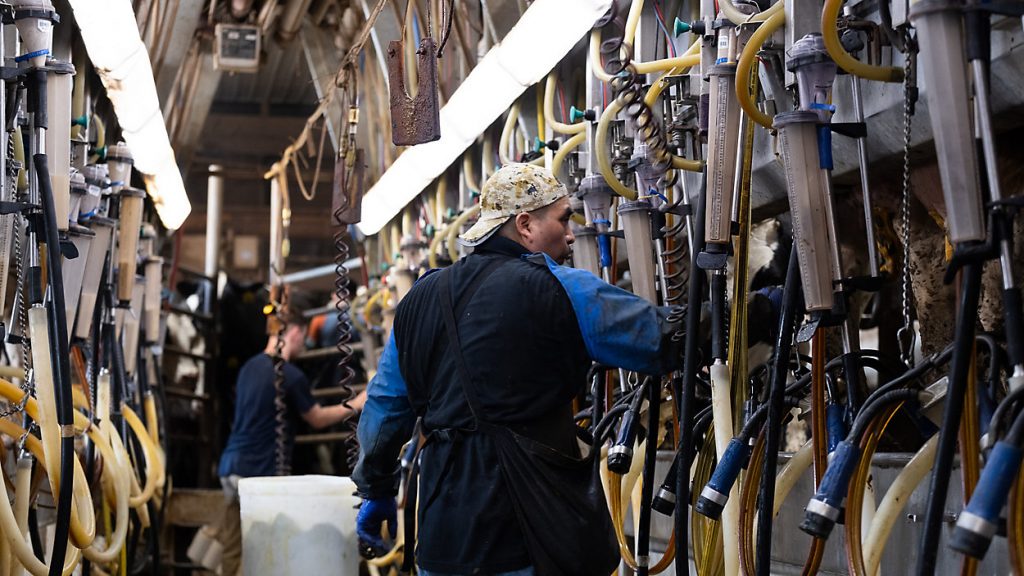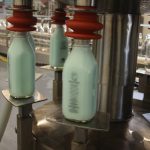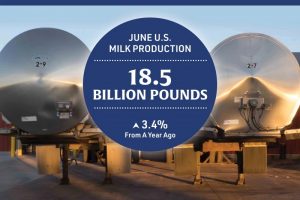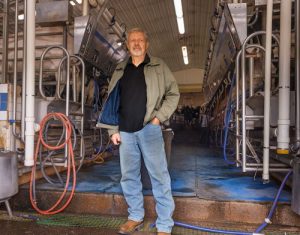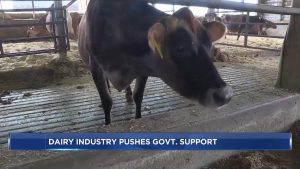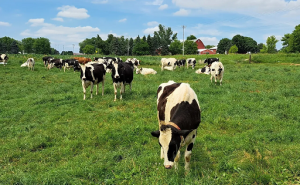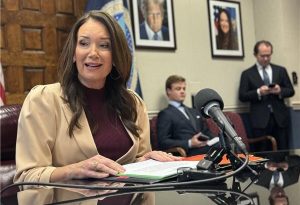
President Donald Trump has promised to crack down on immigrants in the country without legal status, however, many agricultural industries rely on these workers to fill labor jobs.
Most dairy farms — a year-round operation — are not eligible to apply for H-2A workers because these jobs are not seasonal, so the positions are filled by immigrants.
“There are not a lot of local folks who want to do this type of work, so in order to fill that need people come from other countries to help fill the labor shortages that our farms face,” said Allyson Jones-Brimmer, vice president of regulatory and legislative affairs for the Northeast Dairy Producers Association.
The U.S. Department of Labor estimates that about 50% of farmworkers lack legal status. The data says that 83% of farmworkers are settled and not considered migrant workers, meaning they work at one farm within 75 miles of their home.
“Some employees are here from other countries, and they’re scared that the current administration will impact their ability to stay here and continue working like they are,” Jones-Brimmer said.
Creating a federal program that would allow workers to come to the U.S. and work full-time on a dairy farm that requires year-round help could alleviate some of the labor shortages, she said.
John Lemondes, a farmer and New York state assemblymember, said the H-2A program is critical to farms, but does believe there are reforms needed.
“It’s kind of a joke that somebody from any country in the world — military-aged men, people carrying disease, weapons, drugs, all kinds of nefarious things to hurt and kill Americans — can just walk across our border, and yet these people that work on our farms have to go through this months-long H-2A process to come and work,” Lemondes said.
During the campaign, then-candidate Donald Trump promised the U.S. would “grow more farm products in the USA and rebuild our country with American hands.”
“A Trump administration will always put farmers and American workers first. I will prioritize merit-based immigration, ensuring those admitted to our country contribute to our economy and strengthen our country,” Trump said in a response to a questionnaire distributed by American Farm Bureau Federation.
Richard Stup, the director of the Cornell University Agricultural Workforce Development Program, said they are working to make sure farmers, managers and workers understand the law and necessary documentation such as I-9 forms.
“One of the things we’re doing is helping those employers to make sure their I-9 process is consistent and accurate, that they’re filling out those forms correctly, and that they’re prepared in case immigrant enforcement authorities come and want to look at their I-9s or conduct a raid on the farms,” Stup said.
Typically, a farm would receive a letter in the mail requesting documentation for their workers. ICE agents may show up to the farms and ask to speak with an owner or manager of the farm to see documentation. ICE raids, however, happen when agents have a warrant from a judge allowing them to search the farm.
“Now, there haven’t really been ICE raids for a few years, but they could happen again with the new administration,” Stup said. “We just want people to understand what it is, what their rights are, both employees and employers, and how to respond so that everyone is as safe as they possibly can be in that situation.”
During a joint budget hearing last week, Commissioner of Agriculture Richard Ball said they will be monitoring the immigration situation closely.
“We saw back in that first last administration, there was 270% increase in ice activity and border patrol raids on New York farms and that was a difficult time for New York agriculture, particularly for dairy,” Ball said.
Additionally, he highlighted there hasn’t been a thoughtful discussion around a guest worker visa program that would help address these concerns for decades.
“There is certainly concern about ICE stopping in and so we want to work with our employees and communicate that if they stop, you have the right to ask these questions and make sure everyone is prepared,” said Hannah Worden, a partner at Will-O-Crest Dairy in Clifton Springs.
Immigrants are a vital part of the team on their farm. The farm milks about 2,000 cows and farms 4,000 acres, they employ about 50 people with many of them being immigrants.
“For quite a few years, we’ve used immigrant labor. We don’t have local people who are interested in doing those jobs,” Worden said. “The immigrants we have come in, they do a really great job. They’re passionate and they enjoy working with the animals. Without them, we’d have to rely more on technology, and we would lose some of the personal touch with the cows and things like that if we don’t have people to do these jobs,” Worden said.
Additionally, implementing the necessary technology that could fill the gaps of missing workers could cost millions of dollars.
With the large number of cows they milk, it would be detrimental if they did not have the labor force that they need on their farm, Worden said. She would like to see changes that would allow workers a legal pathway to work in the U.S. and remain here for three to five years.
“If they’re interested, it would really give that employee the opportunity to come here to earn some money to bring back to their family, contribute to our local economy and take care of animals then have a status so that they can return home where their families farm,” Worden said.
You can now read the most important #news on #eDairyNews #Whatsapp channels!!!
🇺🇸 eDairy News INGLÊS: https://whatsapp.com/channel/0029VaKsjzGDTkJyIN6hcP1K
